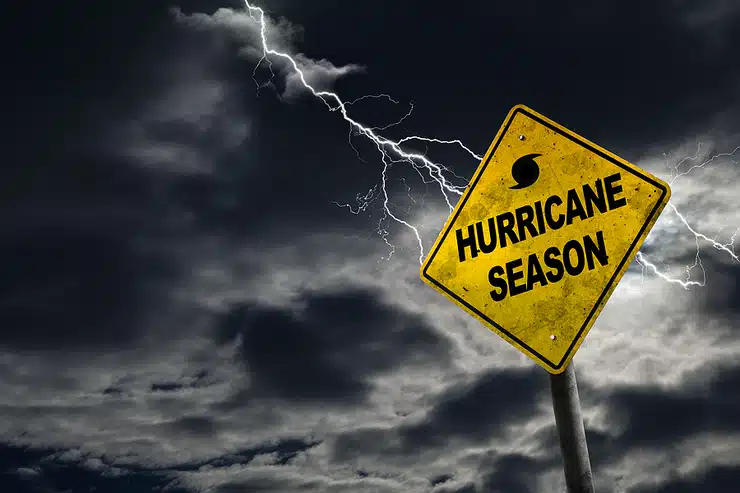A perfect storm is forming over the insurance industry. Amid record-high turnover and hiring difficulties, many companies are struggling to maintain adequate staffing levels. Meanwhile, the 2022 Atlantic hurricane season is just around the corner, and it’s promising to be a doozy. When understaffed insurance companies get hit with the tropical storm claims surge, the results could be disastrous. It’s time to make emergency plans now.
Experts Are Predicting Another Bad Year
Does it seem like every year in recent history has been a particularly bad year for hurricanes? You’re not imaging things. The National Oceanic Atmospheric Administration says that we’ve had six consecutive years of above-normal Atlantic hurricane seasons. In both 2021 and 2020, the list of storm names was exhausted. That’s the first time on record that two consecutive hurricane seasons have had more named storms than preselected names.
AccuWeather’s 2022 Atlantic hurricane season forecast calls for another year of above-normal hurricane activity. A normal year sees about 14 named storms. AccuWeather says we can expect 16 to 20 named storms in 2022. Of these storms, six to eight are expected to become hurricanes, three to five are expected to become major hurricanes, and four to six are expected to have a direct impact on the U.S.
That might be a conservative estimate. Researchers at North Carolina State University are predicting 17 to 21 named storms and seven to nine hurricanes.
Either way, it looks like we need to brace for another year with lots of hurricane activity – and lots of hurricane insurance claims.
Don’t Wait to Start Preparing
The Atlantic hurricane season officially begins on June 1. However, storms don’t always wait until that data to form, and insurers shouldn’t wait to prepare.
AccuWeather says there’s a good chance we’ll see a storm form before June 1 this year. In fact, preseason storms have become so common that officials at the National Hurricane Center are debating whether the start date should be moved up.
Regardless of the official start date, people should begin thinking about emergency planning already. Insurers should encourage policyholders to take stock of their supplies and consider steps to protect their property. Business owners should also be thinking about their emergency and business continuity plans.
Meanwhile, insurers themselves also need to take steps to prepare for the coming hurricane surge.
A Surge in Claims Is Coming
In 2020, Hurricane Laura resulted in insured losses totaling $10 billion, according to the Insurance Information Institute. That was just one hurricane in year that saw a record-breaking high of 30 named storms, including 11 that made landfall in the United States.
Hopefully, the 2022 Atlantic hurricane season won’t be that bad. However, the predictions so far indicate that the season will be worse than normal, and even an average hurricane season sees a spike in claims.
Hurricanes impact large areas all at the same time. This means that there can be millions of claims that need to be filed all at once. For individual insurance companies, claims volume can go through the roof.
The Hurricane Claims Experience from the Policyholder’s Point of View
Insurance professionals might argue that some delays and slowdowns are to be expected considering the high volume, but don’t expect your policyholders to agree. They’ve been paying their premiums month after month to make sure that they’ll be protected if anything happens. Once something happens, they expect to get the protection they’ve been paying for.
Also, it’s hard to be patient when a tree has fallen on your living room or a leak has sprung in your roof.
If you don’t deliver a great claims experience during a difficult time, your policyholders might start questioning their decision to buy insurance from you.
Get the Back-Up Support You Need
Hiring on a bunch of new staff in case there’s a hurricane-related storm surge might not be the most practical plan. First, you’d have to find the right workers to hire, a task that might not be easy given the current labor shortages. You’d also have to train the workers. After all of that, you probably won’t need the extra labor most of the time. That’s not a great way to protect your bottom line.
There’s a better way. You can collaborate with Covenir to get 24/7/365 FNOL receipt and claims support. Our representatives offer empathetic claims services for personal and commercial lines. Support is available in 175 languages.
Things might get extra busy this hurricane season. Get the support you need to extend your team during surges in claims volume. Learn more.

